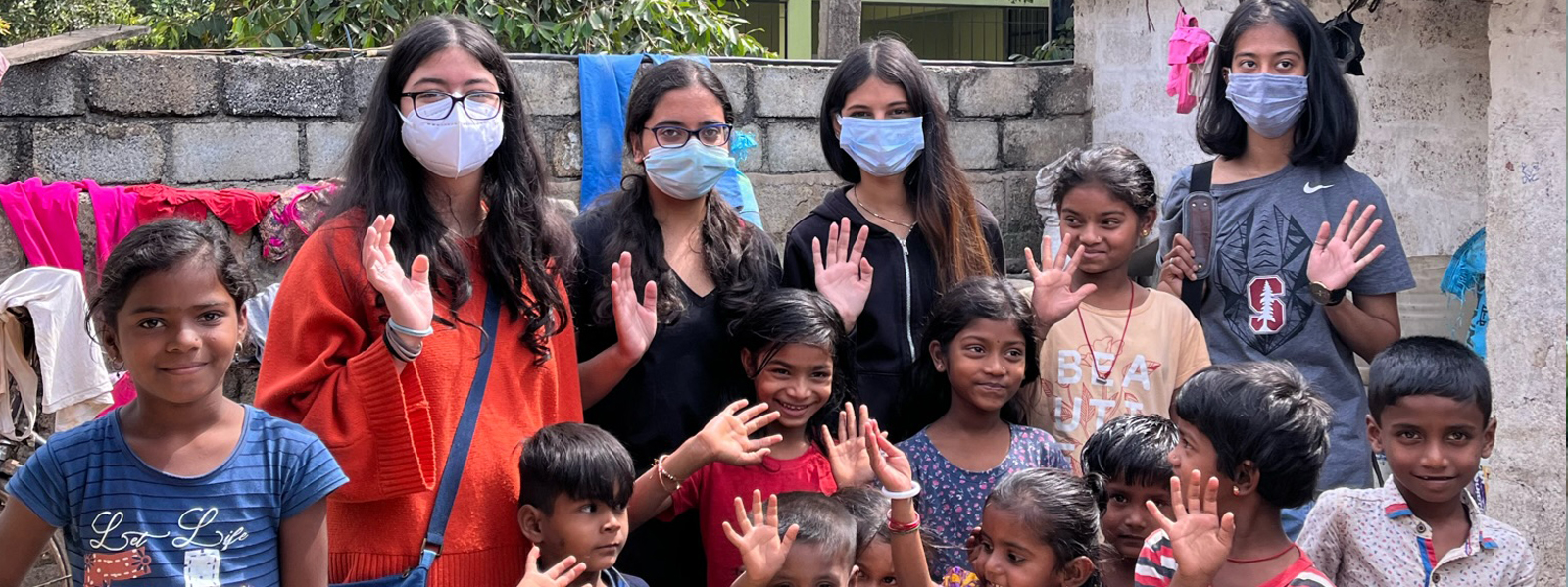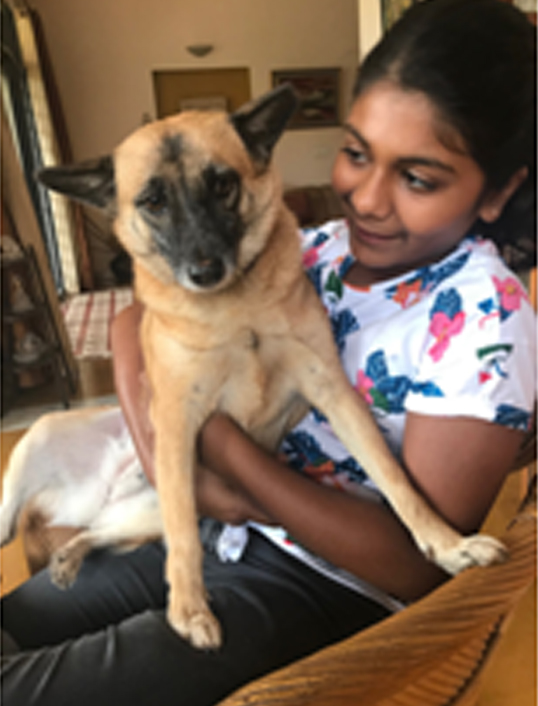

Stray Dogs
A couple of years back, when we started The Anugraha Project, one of the first things we noticed was stray dogs walking around the slum, unvaccinated and unsterilized. Although BBMP has been working on a stray dog management program, and organizations like CUPA (Compassion Unlimited Plus Animals) exist to provide care to stray dogs, Bangalore’s stray dog population remains not entirely cared for.
First, let’s go back about six years. Manya and I were 12 years old with a love for dogs and a desire to make a difference in how stray dogs, more affectionately called “streeties,” were treated. We didn’t understand why streeties were treated so differently than our pet dogs. And so, after some research and conversations with neighborhood streetie care-giving experts, we embarked on our own effort, which we named “Pause for Paws.”
We set up a series of sales, making baked goods, dog treats, and toys, eventually raising about two lakhs. With this money, we organized for CUPA to come to Sadashivnagar and vaccinate and sterilize as many dogs as we could with our money. Both of these practices are extremely important for the health of any dog, especially streeties. Sterilization ensures that fewer stray puppies are born, reducing the overall stray population. Sterilization also reduces the risk of reproductive health issues for dogs and lowers a dog’s general aggression levels. Vaccination is obviously also deeply important as it both protects the streeties from disease, which can be painful, and protects humans from contracting disease should they be bitten.
With our Pause for Paws effort, we also aimed to impact the way in which people regard streeties. At present, many people are either scared of or do not know how to treat the stray dogs that live around them. It is estimated that there are between 30 – 60 million streeties in India, that is, 30-60 million dogs living without food or shelter and susceptible to disease and the abuse of the people surrounding them. The other side of this issue is that due to fear, disease, or survival instinct, streeties will sometimes bite or attack the people surrounding them. These bites often go untreated by people unaware of the dangers of contracting disease; currently, India is said to account for 36% of worldwide rabies deaths.

Back in 2016, a small street dog appeared outside of my grandmother’s house in Bangalore, her ribs were poking out due to malnutrition, and her fur coat was bare in spots. Terrified of people, she would cautiously eat the food we fed her outside the gate. Slowly, she made it up the driveway and then, eventually, into the house. Today, she lives much like any other pet dog; she has a preference for eating mutton and loves being pet by people. We are lucky to have found her, and she is lucky to have found us! While there are countless other similar stories of people adopting streeties all across Bangalore, BBMP officials estimate there are still 2.8 lakh streeties in Bangalore at the moment. They aim to vaccinate about 50% of this population and plan to spend 9.3 crores on streetie sterilization by the end of the year.
At TAP, we believe in making a positive impact within the community that we work with, both for humans and animals. When we first started working with our community, we noticed about five stray dogs, one of which was aggressive. We have since sterilized and vaccinated all 5 of these dogs, making living better for the animals and often much safer for the humans. In the upcoming months we have plans to lead a rabies awareness workshop in collaboration with Rotary Club.
Mira Krish, Co-founder,
The Anugraha Project
Copyright © 2025 Anugraha Project. All rights reserved.
